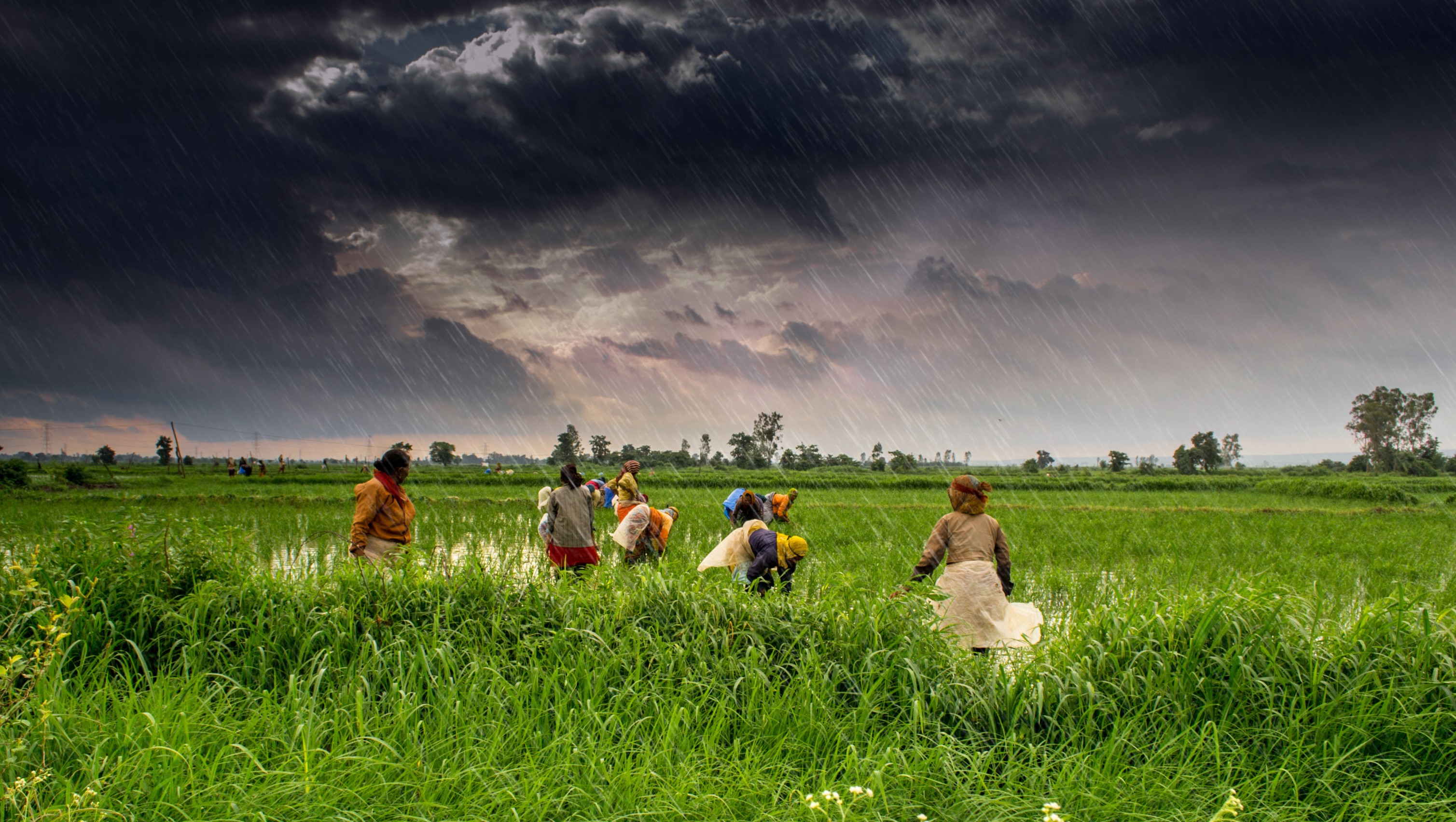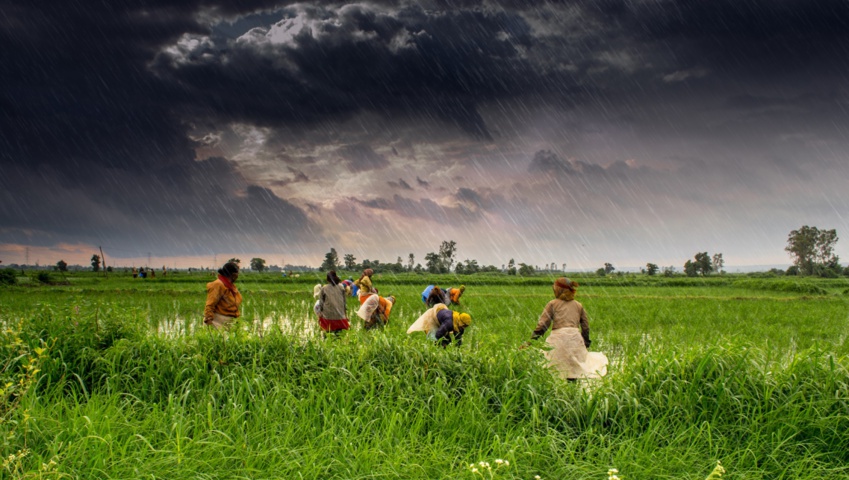Approximately 97 percent of farmers worldwide cultivate less than 10 hectares (about 25 acres) of land. These farmers, totaling around 550 million individuals in low- and middle-income countries, particularly in Asia and Africa, play a vital role in feeding more than half of the population in these regions, many of whom own less than 2 hectares (about 5 acres). The significance of smallholder farmers in global agriculture and food security cannot be overstated.
Aligned with the UN Sustainable Development Goals (SDGs), we are dedicated to contributing to feeding the growing population while respecting the limits of our planet. Our focus begins with the farmers who form the backbone of food security in numerous rural areas across the world. By assisting smallholder farmers in their endeavors to escape poverty and provide for their families, we aim to empower them to establish viable and sustainable businesses, creating positive effects that extend to their rural communities. Our goal is to make a meaningful impact not only on the lives of smallholder farmers but also on our collective livelihood.
Empowering smallholder farmers is crucial for ensuring food security. In collaboration with our partners, we strive to unlock the potential of individual smallholders, recognizing that their success contributes directly to the overall success of the ecosystem. By increasing smallholder incomes sustainably, we can foster inclusive development in low- and middle-income countries.
Smallholder Farmers' Needs
Numerous challenges confront smallholder farmers. Often, their yields remain low due to limited access to high-quality crops and insufficient knowledge of more productive and environmentally friendly cultivation methods. Additionally, they face obstacles such as unaffordable financing options and limited access to markets where they can sell their products at fair prices. Moreover, smallholder farmers are highly vulnerable to the impacts of climate change, which increasingly lead to harvest losses. Consequently, they struggle to attain a stable income from farming.
Smallholder Strategy
As the world's leading agriculture company, we have committed to supporting a total of 100 million smallholder farmers in low- and middle-income countries by 2030. Our approach involves enhancing their access to agricultural products, services, and partnerships. To accomplish this, we are expanding our commercial efforts and strategic initiatives tailored to the specific needs of smallholder farmers. Our strategy to strengthen smallholder farmers is deeply integrated into our regional commercial strategies.
We are progressively expanding our product and service portfolio for smallholder farmers, incorporating innovative business models and digital solutions across the entire crop system. This encompasses advancements in digital farming, market access, modifications to our product lineup, biotechnological solutions, and establishing partnerships throughout the value chain.
Our goal is to develop market models that minimize business risks for all stakeholders in the value chain, including smallholder farmers. This is achieved by facilitating smallholder farmers' access to the agricultural value chain, enhancing productivity and income, and establishing resilience for long-term food security in low- and middle-income countries (LMICs) and their rural regions.
Targets & Achievements
By 2030, our aim is to support 100 million smallholder farmers in LMICs through the provision of products, services, and partnerships. Our objective is to enable them to produce sufficient high-quality food for themselves and others. We understand that improving the livelihoods of smallholder farmers not only enhances food security and quality of life in their communities but also contributes to the growth of our business.
In 2022, we achieved approximately €2.3 billion in sales with smallholder farmers globally, accounting for around 9% of Crop Science's divisional sales. We anticipate doubling our smallholder farming business by 2030 compared to the reference year of 2019, which was approximately €1.7 billion.
Together with our partners, we supported 52 million smallholder farmers in LMICs with our products and services in 2022, an increase of 3 million compared to the previous year. This accomplishment was made possible through significant expansion of our business activities, particularly in the Asia/Pacific region.
Through the Bayer Foundation, we support the Digital Farmer II program in collaboration with Mercy Corps Agrifin and the Bill & Melinda Gates Foundation. This initiative harnesses the power of digital technologies to develop more efficient digital information and financial products and services for smallholder farmers. The program aims to reach up to five million farmers in Nigeria, Kenya, and Ethiopia by 2025. In 2022, we reached approximately 950,000 smallholder farmers through non-commercial partnerships.
To scale our impact, we base our engagement with smallholder farmers on three key strategic initiatives: Smallholder-centric Solutions, Value-chain Partnerships, and Digital Solutions. These initiatives aim to unlock the farming potential of smallholder farmers and enhance their livelihoods.
Developing smallholder-centric solutions is crucial for enabling more farmers to achieve higher crop yields. These solutions involve providing high-quality seeds for major crops that are resilient to various environmental conditions and pests, along with affordable and effective crop protection products.
By deeply understanding and collaborating with smallholder farmers, we strive to establish long-lasting partnerships that offer access to training, advice, and solutions necessary to leverage the opportunities of commercial farming. Additionally, we aim to create inclusive business models that connect smallholder farmers to the agricultural value chain.
To help smallholder farmers increase their productivity while promoting responsible land management, we are focused on creating, testing, and scaling digital solutions. Expanding access to and utilization of new technologies is vital for overcoming challenges posed by extreme weather conditions and pests, while simultaneously improving income and food security.
Together, we are directly working with smallholder farmers worldwide to make a substantial and positive impact.


 Empowering Smallholder Farmers: Enhancing Food Security and Sustainable Agriculture
Empowering Smallholder Farmers: Enhancing Food Security and Sustainable Agriculture





 Companies
Companies